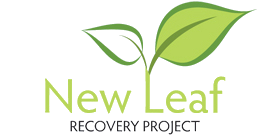Boredom in Addiction Recovery

Feeling bored is a part of life and is not an uncommon feeling. There are many reasons to feel bored, but boredom isn’t always bad. The human brain simply cannot sustain 24/7 stimulation and needs downtime and rest, even if these moments feel boring. But in today’s fast-paced society, boredom has been demonised. But for those in addiction recovery, boredom can actually become dangerous.
However, this feeling of boredom can become an issue when it starts to interfere with your life. If your boredom decreases your quality of life, stops you from doing needed tasks, or affects your mental wellbeing, then it could be linked with an underlying issue. For those in addiction recovery, boredom can be the biggest trigger between you and successfully maintaining sobriety.

What Is Boredom?
You may think boredom is caused by having nothing to do, but this is not the case. The problem is that nothing that you have available seems appealing, satisfying, or engaging. This signal may indicate that an individual is not fully engaged or feels disconnected, as boredom is linked to attention. This feeling may cause a negative reaction, like feeling especially tired or irritated, and usually causes an individual to seek out stimulation. For someone in recovery or an addict, this boredom could lead back to their addiction.
Risks of Boredom in Addiction Recovery
For someone in addiction recovery, feelings of boredom can become dangerous and cause individuals to undertake risky behaviours and make choices they later regret. These behaviours may include:
- Excessive overspending or gambling, to the point of financial ruin.
- Risky sexual encounters, which may result in STIs or unwanted pregnancies.
- Self-isolation or staying inside to the point of being detrimental to mental health.
- Illegal behaviour, risking legal involvement.
- Spending more time in bad environments or around negative influences.
- Addiction relapse, potentially resulting in overdose.
Not only are these behaviours risky in themselves, but they also have the potential to lead to serious consequences. These consequences can endanger the mental and physical health of an individual as well as threaten their recovery.
Signs of Boredom: What to Look Out For
Boredom can manifest in several ways, but there are a few common feelings, behaviours, and experiences that you can monitor within yourself to be prepared for when boredom strikes.
- Feeling restless or unable to relax.
- No interest in activities.
- Lacking feelings of excitement.
- Struggling to stay motivated.
- Unable to stay motivated.
- Difficult staying interested, with interest disappearing after brief periods.
By looking out for these signs of boredom in your addiction recovery, you can proactively work against the feeling before it has the chance to negatively affect you or trigger a relapse.
Managing Boredom in Your Addiction Recovery
Addiction affects the brain and is considered a disease. The damage caused by this disorder can inhibit natural feelings of excitement or stimulation outside of that addiction, making boredom even more common, and this amplified version of boredom is much harder to satisfy.
Rather than sitting in your boredom indefinitely, acknowledge it. Think about what you really want to do, don’t dismiss anything. This is a prime opportunity to try something new or find a new hobby, like:
- Writing down new potential hobbies, and actually giving them a go!
- Joining a local club, community group, or sign up for a class.
- Cooking or baking, an old favourite, or something new!
- Moving your body in a way that sparks joy.
- Learning a new skill, like an instrument, language, or anything else that takes your fancy.
- Exploring somewhere new.
- Try something creative, like a craft or a type of art that interests you.
- Commit to relaxing – read a book or take a long bath.
Rethinking Boredom With New Leaf Recovery
No matter what activity you decide to try, commitment and consistency are key. At first, whilst your brain is recovering, rather than enjoying these activities may be unfulfilling or even uncomfortable. But, with time, patience, and experimentation you may find something that becomes more satisfying and engaging over time.
As a part of this practice, it’s also important to reframe your thoughts around boredom and examine your thinking. Consider mindfulness practices to make activities more grounded and meaningful. This includes reducing the use of things that absorb a lot of time without many benefits, like screens. Choosing to turn screens off means you can be fully present.
Sometimes reframing your thinking may be as simple as actively choosing to do something boring. Treat these ‘monotonous’ tasks as meditative moments, and you may find that the satisfaction that comes from productivity alleviates your boredom much more successfully than a task that has the expectation of being fun but may not always deliver.
Sometimes to achieve emotional regulation, overcome boredom, and pursue your passions outside of addiction, you may need help. Local support groups, your loved ones, or even a rehab centre like New Leaf Recovery can offer their support every step of the way in your recovery journey. In this way, boredom is just another step you must face on your path to sobriety. Don’t hesitate to get in touch today if you need further advice or support, we’re happy to help!
Receive a Free Call Back
"*" indicates required fields
Our Complete Recovery Journey - from your initial enquiry, all the way through treatment and beyond into ongoing support, New Leaf Recovery are there to guide and support you.
New Leaf offers a complete journey of treatment - from initial detoxification and rehabilitation to ongoing support, including aftercare, family support, and beyond into long-term recovery.
Getting the right accommodation enables us to provide the right backdrop for our recovery methods. Any form of rehabilitation needs to happen in a safe, comfortable, secure and friendly environment.
Receive a Free Call Back
"*" indicates required fields










